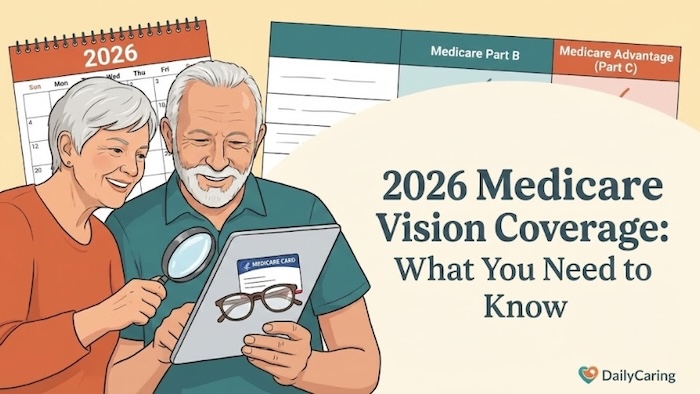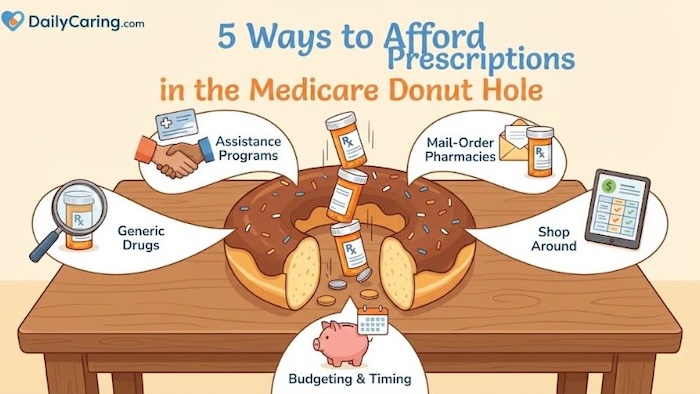Discovering that Medicare doesn't cover a vital medication can feel like a devastating blow. In an instant, the focus shifts from your loved one's health to a maze of paperwork, complex rules, and financial anxiety.
That sinking feeling of “what do we do now?” is all too common, but it's not the end of the road. There is a straightforward, strategic process for appealing this decision and finding alternative solutions.

Knowing these five steps can transform you from a frustrated bystander into a powerful advocate, equipped to challenge the decision and secure the treatment your loved one needs.
Medicare Doesn’t Always Cover All Drugs
Most older adults get prescription drug coverage through a Medicare Part D plan or a Medicare Advantage plan.
Each plan has a list of drugs it will cover, called a formulary.
A significant problem is that these formularies don’t cover everything and keep changing.
A new medication your older adult’s doctor prescribes might not be covered. Or, a drug they’ve been taking for years could suddenly be dropped from the formulary.
If your older adult’s medication isn’t covered, use these five options to get the drugs they need at the lowest cost possible.
5 Good Options for Medications That Medicare doesn't cover
1. Ask the doctor about generics or substitutes
Multiple medications can often have similar effects.
If the brand drug isn’t covered, ask the doctor if any generic medications would work just as well.
Or ask whether other medications could also be used to treat their condition.
2. Ask the insurance company for a formulary exception
If your older adult must have a specific drug, you can ask the insurance company for a formulary exception.
That means they’ll cover that medication for your loved one as a notable exception.
A formulary exception may be granted if the doctor provides a written statement saying that the drug is medically necessary for your older adult’s health.
Ask the insurance company for the required forms.
3. File an appeal if the formulary exception is denied
If the drug plan denies your request for a formulary exception, you can file a new decision request on the initial rejection. Here's more info on the Medicare Prescription drug appeals & grievances
4. Switch to a different Medicare prescription drug plan
If you can’t get the formulary exception, you might want to switch to another prescription drug plan that does cover your older adult’s necessary medications.
However, you can only change plans during the Open Enrollment period, from October 15 to December 7.
Pro tip: When you're choosing a new drug plan, ask the doctor which of your older adult’s medications must be a specific brand and which are OK as generics or substitutes (some drugs types are more sensitive than others). That gives you more flexibility to find a plan that covers all the medications your senior needs.
5. Pay out of pocket
If the formulary exception is denied, it’s not Open Enrollment time, and the doctor says your senior needs that specific drug, your last resort is to pay for the medication out of pocket.
Be prepared for sticker shock – paying out of pocket means paying full price, which is usually a lot more than the insurance co-pay.
To help cover those costs, some drug manufacturers offer payment assistance programs, especially for newer or more expensive drugs. Contact the drug's manufacturer or check its website to see whether it provides this type of program.
If your older adult qualifies, the Medicare Extra Help program also helps pay for prescription medication.
Final Thoughts About Drugs Not Covered By Medicare
Successfully navigating a Medicare denial is more than just winning an appeal; it's about affirming your role as a determined and knowledgeable advocate for your loved one's health. While the process requires persistence, each of these five steps brings you closer to the outcome your family deserves.
Remember, a denial is not a final verdict; it's the start of a conversation. You have the right to ask questions, demand explanations, and fight for the prescribed care. Arm yourself with this knowledge, stay organized, and don't hesitate to escalate the issue.
Your proactive efforts are the key to overcoming this hurdle and ensuring your loved one receives the medications they need to thrive.
Recommended for you:
- 7 Ways for Seniors to Reduce the Cost of Prescription Drugs
- Prevent Dangerous Drug Interactions in Seniors with a Drug Interaction Checker
- 6 Common Medication Problems in Seniors and 6 Ways to Solve Them
About the Author

Connie is the founder of DailyCaring.com and was a hands-on caregiver for her grandmother for 20 years. (Grandma made it to 101 years old!) She knows how challenging, overwhelming, and all-consuming caring for an older adult can be. She also understands the importance of support, especially in the form of practical solutions, valuable resources, and self-care tips.














How can we pay less for Eliquis? My mother is 93 years old and cannot afford the $120/month that it costs for 30 pills. There d doesn’t seem to be an alternative for her. Thank you.
We’d suggest going through the options in this article to see if any of those can help lower the cost. Definitely look into Medicare’s Extra Help program to see if she can qualify. Another thing to try is pharmacy discount cards like GoodRx (https://www.goodrx.com/) or BuzzRx (https://www.buzzrx.com/).